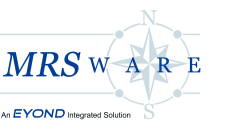Customer Relationship Management for Reps
Customer Relationship Management (CRM) systems offer various benefits for sales reps, contributing to more efficient and effective sales processes. Here are some of the main advantages:
Organized Customer Information:
Improved Communication:
Efficient Task Management:
Sales Pipeline Visibility:
Lead and Opportunity Management:
Analytics and Reporting:
Customer Segmentation:
Mobile Accessibility:
Customer Retention:
In summary, CRMs empower sales reps with tools and features that enhance organization, communication, efficiency, and strategic decision-making, ultimately leading to improved sales performance and customer relationships.
Organized Customer Information:
- Centralized Database: CRMs store customer information in a centralized location, providing easy access to contact details, communication history, purchase patterns, and other relevant data.
- Quick Retrieval: Sales reps can quickly retrieve essential customer information, enabling personalized interactions and targeted sales efforts
Improved Communication:
- Collaboration: CRMs facilitate collaboration among sales team members by allowing them to share information and insights about customers and deals.
- Communication Tracking: Reps can track communication history, ensuring they are well-informed before engaging with customers.
Efficient Task Management:
- Task Automation: CRMs automate routine tasks, such as follow-up reminders, appointment scheduling, and lead assignment, allowing sales reps to focus on more strategic aspects of their work.
- Calendar Integration: Integration with calendars helps sales reps manage appointments and deadlines effectively.
Sales Pipeline Visibility:
- Pipeline Monitoring: CRMs provide a visual representation of the sales pipeline, helping sales reps track deals at different stages and prioritize their efforts accordingly.
- Forecasting: With data on sales trends and historical performance, CRMs assist in accurate sales forecasting.
Lead and Opportunity Management:
- Lead Tracking: Sales reps can track leads from the initial contact to conversion, ensuring that no potential opportunity is overlooked.
- Opportunity Prioritization: CRMs help prioritize opportunities based on factors such as lead score or potential value, allowing reps to focus on high-priority prospects.
Analytics and Reporting:
- Performance Metrics: CRMs offer reporting tools that allow sales reps to analyze their performance, identify strengths and weaknesses, and make data-driven decisions.
- Customizable Reports: Reps can generate custom reports tailored to their specific needs, helping them gain insights into various aspects of their sales activities.
Customer Segmentation:
- Targeted Marketing: CRMs enable sales reps to segment customers based on demographics, behavior, or purchase history, allowing for more targeted and effective marketing efforts.
- Personalized Messaging: By understanding customer preferences, reps can tailor their messages and offerings to better resonate with individual clients.
Mobile Accessibility:
- Remote Access: CRMs offer mobile applications, allowing sales reps to access critical information, update records, and stay connected with clients while on the go.
Customer Retention:
- Customer Insights: CRMs provide insights into customer behavior, helping reps identify opportunities for upselling or cross-selling and fostering long-term relationships.
- Customer Satisfaction: By maintaining a detailed record of customer interactions, reps can address customer needs more effectively, contributing to higher satisfaction levels.
In summary, CRMs empower sales reps with tools and features that enhance organization, communication, efficiency, and strategic decision-making, ultimately leading to improved sales performance and customer relationships.

